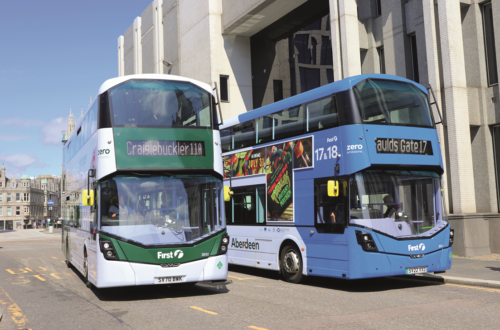
The SNP has proposed banning the sale of new non-zero-emission buses by 2025 in its electrion manifesto, a stance which has met with disapproval from the industry and trade bodies. The CPT said the manifesto is ‘bad news for a smooth transition to net-zero services across Scotland.’ By proposing an end of sale date of 2025 for diesel powered buses, the SNP is disproportionately targeting SMEs and rural bus operators and the marginal, but socially necessary, services they provide, says CPT. Responding to the SNP’s manifesto pledge, Director of the Confederation of Passenger Transport Scotland Paul White said: “Many larger bus operators have already committed to purchasing only zero emission or ultra-low emission vehicles, provided that the right fiscal support is delivered by government to help meet the higher purchase costs and the required supporting infrastructure.
“The transition to zero-emission is not purely about cost. Practical concerns like the availability of charging infrastructure and vehicle range must be considered. These issues are most prevalent in rural areas. It is unclear how the SNP plans to deliver more frequent and better rural bus services if bus operators cannot source or operate vehicles that are suitable for rural routes.”
The CPT added that it believes the SNP proposal also puts UK bus manufacturing jobs at risk, creating uncertainty in the supply chain and potentially disadvantaging that domestic sector in comparison to its global competitors.
Paul added: “If the SNP wishes to accelerate the transition to a zero-emission bus fleet it should commit to further rounds of the Scottish Zero Emission Bus Scheme (ScotZEB), support investment in R&D to deliver vehicles with the power and range to provide services in challenging geography, and work with CPT and its operator and manufacturer members to map out a credible pathway that offers a realistic and just way forward for operators, manufacturers and passengers”

